
The Rise of the Radical Right in Italy and the Transformation of Italian Politics
Volatility Post-World War II Italian politics has often been marked by significant political instability and frequent changes of government. The twenty-first century period in Italian politics has been characterised by the emergence of new political forces, the decline of traditional parties, and persistent public policy challenges related to corruption, economic stagnation, and immigration (Albertazzi and Zulianello, 2021). Remarkably, Italy has had an astonishing 69 governments in 79 years. This means that on average, governments in Italy last for just over a year. Our forthcoming book “The Rise of the Radical Right in Italy: A New Balance of Power in the Right-Wing Camp” to be published by Columbia University Press and ibidem Press in June 2024 examines the more worrying trend …
What if We Talked about Foreign Policy? Italy’s Opportunities for Global Leadership in 2021
After the Cold War and the fall of the First Italian Republic, Italy struggled to formulate a coherent foreign policy strategy. Generally, foreign policies at global level during the Cold War era were dictated by the bipolar relationship between the United States and the Soviet Union. Italian foreign policy, therefore, was a function of the United States’ sphere of influence and interests, and Italy was often a bridge and interlocutor for the Americans to the Middle East or Eastern Europe. With the collapse of the bipolar system and the disintegration of the major Italian political parties that were the core political actors in the aftermath of World War Two, Italian foreign policy was partially dictated by individual figures and was …
Italy’s Other Wave: Protests during the Second Lockdown
Italy was the first Western democracy to impose a country-wide lockdown in response to the COVID-19 pandemic. Despite successfully curbing the number of infections in the first half of 2020, Italy saw its cases increase again in October, prompting Prime Minister Giuseppe Conte and local governments to announce new restrictions to curb the cresting second wave. Despite the clear memory of the significant death toll and warnings of the dangerous winter to come, however, these announcements have been met with opposition. On the evening of the 23rd October, thousands gathered in the streets of Naples to protest against the forced closure of shops and restaurants and the threat of a local lockdown. A group of about 300 people—including youth, extremist political groups, and football hooligans—escalated into a violent protest, attacking police officers, burning cars, and vandalizing private …
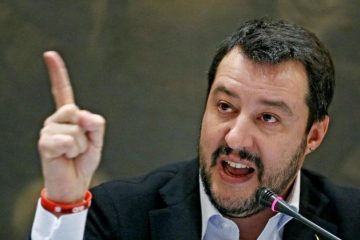
The Captain at the Helm: The Rise of the League and the Imbalances of the Italian Government
Italy’s post-war political system is not new to dramatic government changes and sudden reversals of fortunes. The experience of the first populist experiment in government thus far is no exception. The elections of March 4th, 2018, were nothing short of a political earthquake. The most dramatic result was the success of the Five Star Movement (M5S). The political formation, created by comedian-turned-guru Beppe Grillo and led by his former lieutenant Luigi Di Maio, became the strongest party in Parliament with 32.7% of votes, wooing voters away from Matteo Renzi’s PD. On the right, the League took over Berlusconi’s Forza Italia as the main political party, winning over 17% of votes. This ‘sorpasso’ emboldened Salvini to break with the electoral pact …
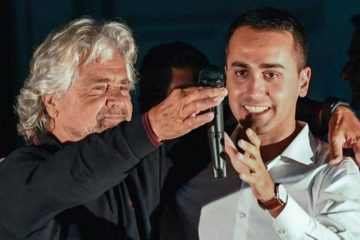
From the Parole Guerriere to Electoral Success: Italy’s Five Star Movement
The Five Star Movement is one of the most interesting political ‘experiments’ on political landscape of Western democracies. Once again Italy, which with Berlusconi has experienced Trumpism before Donald Trump, is a political laboratory for novel political phenomena that the world looks at, with a mixture of concern and excitement, to learn something about the future of our democratic systems. Only five years ago Beppe Grillo, a stand-up comedian and the founder of the Five Star Movement (M5S), launched his parole guerriere (warlike words) and M5S obtained a remarkable 25% of the national vote in its first electoral showing. Italian voters again expressed loudly and clearly their preference for the Five Star Movement in last weekend’s general election. The M5S not …
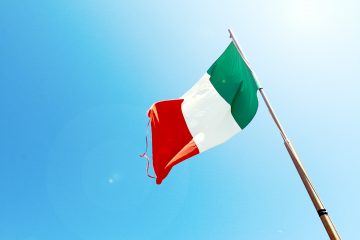
Berlusconi is Back and the Jaguar Will Weigh Heavily on the Next Italian Government
Over two decades have passed since Silvio Berlusconi announced his entry into politics in 1994. Since then, the Italian centre-left coalition has had a half-dozen leaders and has changed its name three times, Italy has seen the first Pope to resign in the history of the Catholic Church and witnessed the first re-election of a president in Italian democracy. Despite all of this, the “jaguar” – more famous for his eccentric metaphors, myriad scandals and oftentimes over-the-top theatrics than for his political achievements – is still there.[1] And, if we consider the Italian electoral system, Berlusconi will be there in the near future. The highly controversial Rosatellum bis – the new Italian electoral law approved by both the centre-left and …
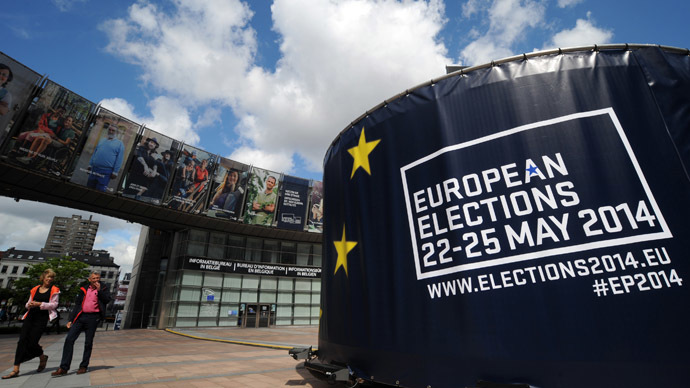
Populism vs. Technocracy? How political parties adapt to new dominant narratives.
Over the last decades, populism and technocracy have attracted a great deal of public attention and generated a lively scholarly debate. As it has recently been argued, they have emerged as the two dominant discourses on the European political scene. As the 2014 European elections clearly showed, even traditional, mainstream political parties increasingly rely on either or both these narratives. One insightful example is the discursive practices of Matteo Renzi’s Democratic Party during the Italian electoral campaign.
After his rise as party leader and then Italy’s youngest ever Prime Minister, Renzi has become a favourite of the international press. As early as 2010, when he was still mayor of Florence, the Tuscan politician proved himself an extremely skilled communicator. His idea of ‘rottamare’ (‘scrapping’) the entire political class had an extremely wide impact on public opinion and soon became a slogan for all those who wanted to contest the status quo in Italian politics. The growing support he received from the public convinced him to run for his party’s leadership primaries in 2012 and then, successfully, in 2013. Nowadays, Renzi’s PD embodies an arguably renewed organisation. The internal opposition has been gradually marginalised and the re-compacted majority has developed a political discourse based on pragmatism, hope for the future and the need for change. In particular, one can observe how the PD has gradually assimilated populist and technocratic discursive strategies by examining the ways in which it deals with a key issue such as the European Union.
The populist mode. According to a growing body of literature, typical examples of populist discursive practices include the reliance upon Manichean oppositions, romanticised and essentialist visions of the people, appeals to the multitude whilst excluding others and extreme simplification and moralisation (Wodak 2003).
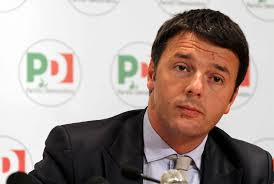
Matteo Renzi’s PD eight months later: where now for the Italian left?
Leading the Italian left has never been an easy task. After the collapse of democratic centralism (i.e. the Leninist practice which obliged the membership to uphold any leader’s decision following an internal discussion), leadership has soon become the Achilles’ heels of the Italian former communists. Party secretaries have been weakened by the rising power of internal factions, used as scape-goats after electoral defeats and blamed for both lack of charisma (Pierluigi Bersani) and excessive protagonism (Massimo D’Alema and especially Matteo Renzi himself).
Moreover, the presidential leadership style of its eternal enemy, Silvio Berlusconi, made the Italian PD (Democratic Party) rather unenthusiastic toward the trends of personalisation and presidentialisation spreading all over Europe. It is not by chance that the Berlusconian model always comes up when discussing Renzi’s personality and politics. Internal opponents and critical observers denounce Renzi’s simplified language and slogans, as well as his post-ideological appeal and charismatic governance. He is even often described as the son of Berlusconi, in the same way that Tony Blair was once called the son of Thatcher.
Albeit controversial, Renzi’s personalized approach seems to have played a key-role in his rise to power. Studies conducted among the delegates at the 2013 Party Conference show that the party’s majority backed him in virtue of his personal characteristics and leadership skills rather than political message. Moreover, whereas the 2012 delegates expected the at-that-time-leader Bersani to promote a process of identity reconstruction and grassroots’ institutionalization, the 2013 Conference asked Renzi for concrete strategies to win the next General Elections (Martocchia Diodati 2014).









